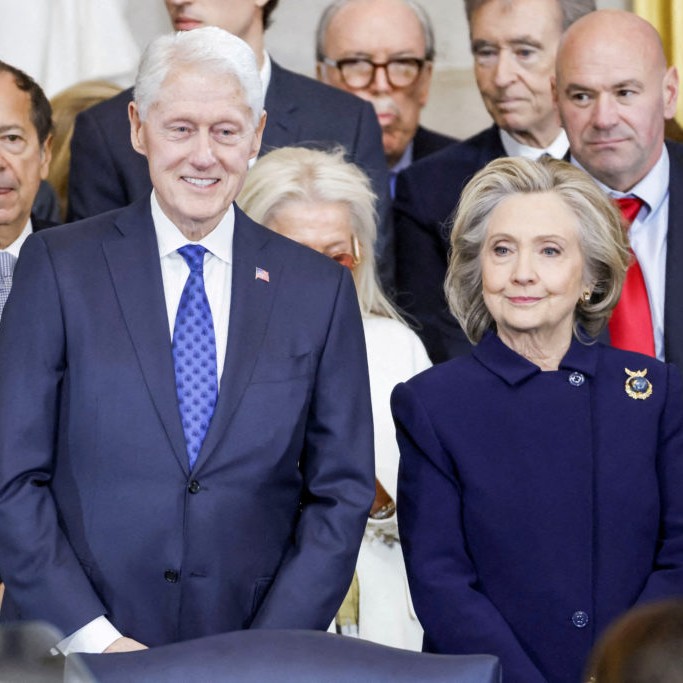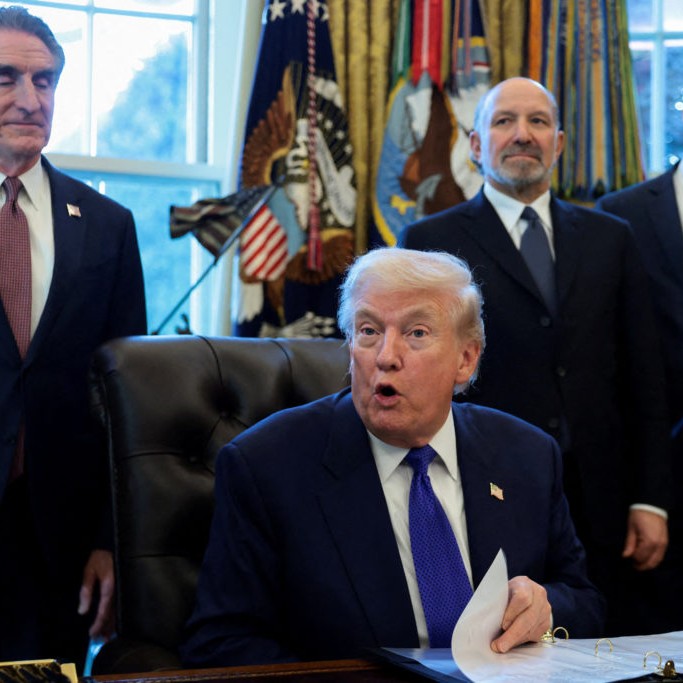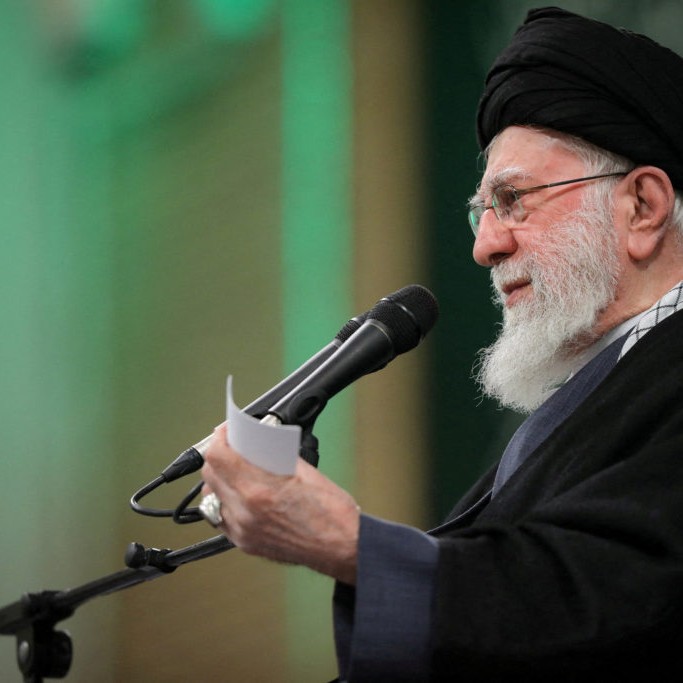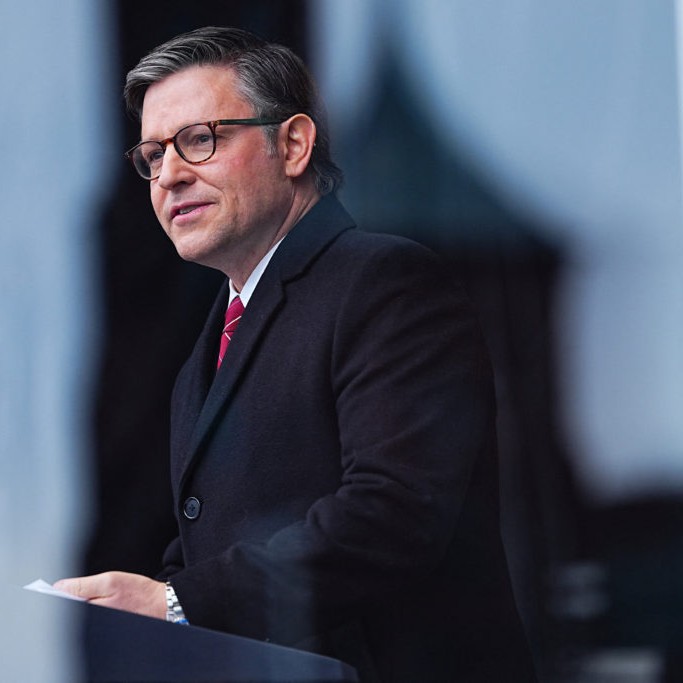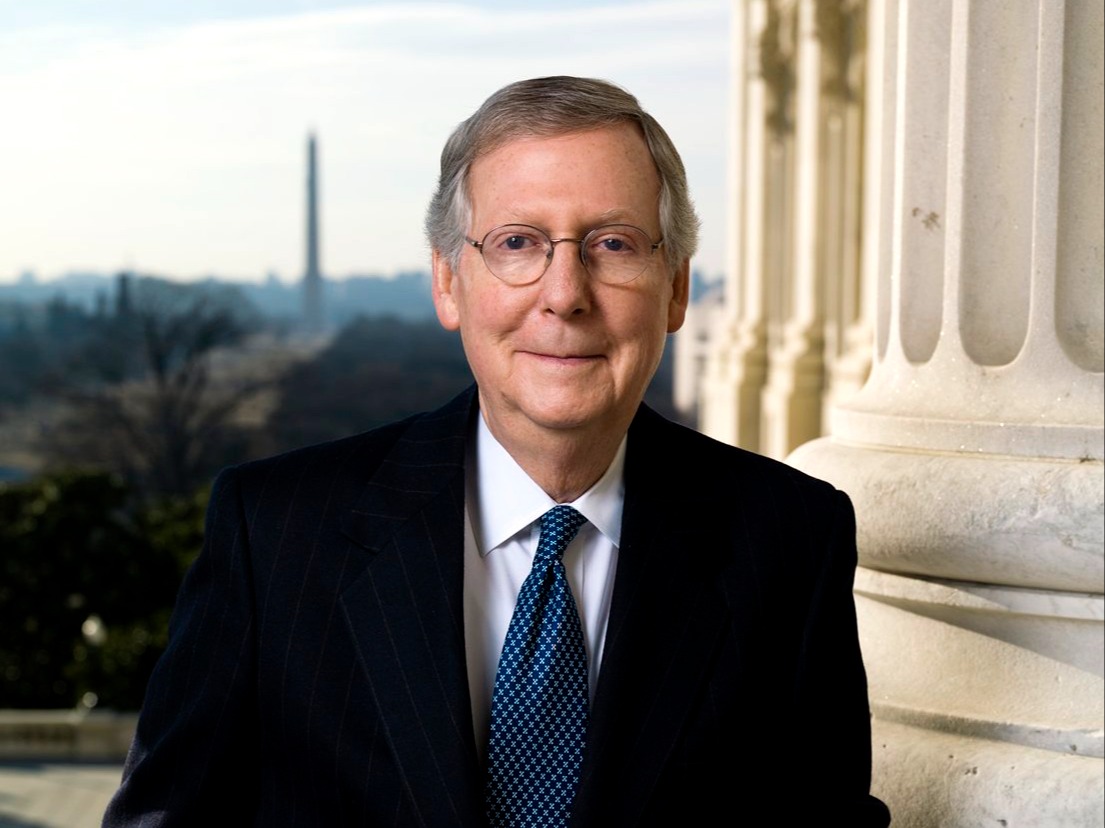
Official photo of United States Senator and Majority Leader Mitch McConnell (R-KY). Photo courtesy of the United States Senate. Public domain.
Mitch McConnell has dusted off his political armor and stepped back into the fray with a blistering attack on Vice President JD Vance, branding him an isolationist who lacks a grasp of history. The Kentucky senator, long known for his steely demeanor and strategic mind, emerged from his semi-retirement to deliver a scathing critique of the Trump administration’s foreign policy, particularly targeting the influence of Vance and other dissenters within the Department of Defense.
This dramatic showdown, unfolding in a June 27 interview with Politico and a fiery Senate floor speech, exposes the deep ideological rifts tearing through the Republican Party.
McConnell’s rebuke is not just a personal jab at Vance, but a broader call to return the GOP to its traditional interventionist roots, a stance that puts him at odds with the “America First” isolationist wing that has gained traction under Trump’s second term.
The Return of the ‘Old Guard’
After stepping down from GOP leadership last year, McConnell appeared to be settling into a quieter role. But recent events — including the U.S. military strikes on Iranian nuclear facilities and President Trump’s high-profile NATO summit visit — have pulled the octogenarian senator back into the spotlight.
Far from the behind-the-scenes strategist, McConnell has taken to the Senate floor and media interviews with renewed vigor, positioning himself as the voice of reason against what he sees as reckless retreatism.
In his interview with Politico, McConnell didn’t hold back. He described Vance and others in the Department of Defense as “rabid isolationists,” implying they are dangerously out of touch with the lessons of history.
The senator suggested that these figures have not learned from the mistakes of the 1930s, when isolationist pressures in the U.S. contributed to the outbreak of World War II. “But those of us who do know need to speak up so at least there’s another point of view out there, and that’s what I’m doing as best I can,” said McConnell.
McConnell’s message was clear: the GOP must reject this inward-looking mindset if it hopes to maintain global leadership and deter adversaries like Russia and China.
A Public Feud With Vance
JD Vance’s stance on foreign policy has been marked by skepticism toward prolonged U.S. military engagements abroad. Just two years ago, Vance praised Trump’s foreign policy for “not starting any wars,” as reported by Vanity Fair.
However, the recent strikes on Iran have forced Vance into a delicate balancing act, as he tries to align with Trump’s more hawkish moves while maintaining his anti-interventionist credentials.
While Vance and his allies push for a more restrained approach, McConnell insists on a robust military posture, arguing that deterrence through strength is the only way to prevent adversaries from achieving their objectives. The senator has publicly praised Trump for pressuring NATO allies to increase their defense spending but insists that the U.S. must lead by example with its own budget commitments.
The Broader GOP Divide
This clash between McConnell and Vance is emblematic of a larger battle within the Republican Party. McConnell represents the establishment wing that favors traditional conservative principles, including a strong national defense and active engagement in global affairs. In contrast, Vance and other “America First” advocates prioritize domestic concerns and often view foreign entanglements as costly distractions.
McConnell’s recent comments also took aim at other Trump administration figures, including Secretary of Defense Pete Hegseth, Director of National Intelligence Tulsi Gabbard, and senior DoD official Elbridge Colby, all of whom he reportedly opposed during their confirmation processes.
“There’s only one decider,” McConnell stated, “and I think it’s pretty clear that the president has total control of the situation,” as reported by Politico.
When asked about his relationship with Secretary of State Marco Rubio, McConnell admitted they do not speak often, underscoring the fractured nature of the party’s foreign policy team.
The Spectacle of an Elder Statesman
At 83, McConnell is nearing the end of a Senate career that began in 1985 during Ronald Reagan’s presidency. Yet, his recent outspokenness reveals a man unwilling to fade quietly into the background. Freed from the constraints of party leadership, McConnell has embraced the role of an elder statesman, using his platform to challenge the current administration’s direction and to remind the GOP of its historical responsibilities.
His Senate floor speeches have been marked by a call for increased defense spending and a rejection of isolationism. McConnell argues that the U.S. must not only demand more from its allies but also lead by example, warning that social media posts and populist rhetoric cannot replace hard power.
The Political Fallout
The feud between McConnell and Vance has ignited a public debate about the future of the Republican Party and its approach to foreign policy. Supporters of McConnell praise his defense of traditional conservatism and his warning against the dangers of isolationism. Meanwhile, Vance’s backers argue that his cautious approach reflects the will of a base weary of endless wars and foreign interventions.
A Party at a Crossroads
As the GOP navigates the turbulent waters of Trump’s second term, the clash between McConnell and Vance serves as a stark reminder of the ideological crossroads facing the party. Will the Republicans embrace a return to interventionist policies championed by figures like McConnell, or will they continue down the path of nationalist retrenchment favored by Vance and his allies?
For now, McConnell’s reemergence as a hawkish critic adds a new layer of drama to the Republican landscape. His pointed rebuke of Vance and others within the Trump administration underscores the ongoing struggle for the soul of the GOP, a battle that will shape American foreign policy for years to come.
If you’re watching closely, this isn’t just a spat between two politicians. It’s a high-stakes contest over America’s role in the world, played out on the Senate floor and in the corridors of power. And with McConnell back in the spotlight, the fight is far from over.
References: Mitch McConnell Breaks Cover to Trash ‘Rabid’ JD Vance | Mitch McConnell Throws Shade at J.D. Vance and Trump’s Merry Band of ‘Rabid Isolationists’ | Vanity Fair | McConnell Sees Iran Strikes as a Teachable Moment for Trump
